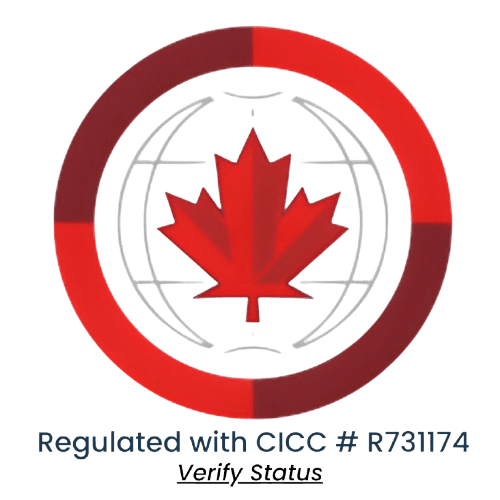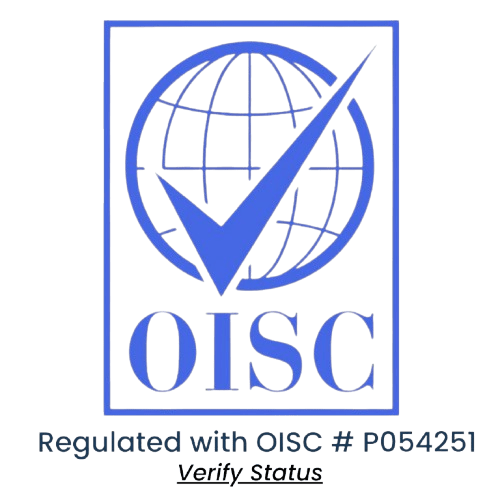Understanding the Provincial Nominee Program (PNP) and General Eligibility
1. Introduction
Canada’s Provincial Nominee Program (PNP) offers a valuable immigration pathway for skilled workers wishing to settle in specific provinces or territories. With Canada’s diverse labor needs, the PNP allows provinces to select candidates who meet their economic and workforce demands. The PNP is particularly helpful for applicants who may not meet the higher thresholds of the Express Entry system but still possess skills that are in demand locally.
As one of Canada’s major immigration streams, over 20% of economic immigrants gain permanent residency through PNP each year, according to Immigration, Refugees, and Citizenship Canada (IRCC). In this guide, we will explore the PNP requirements and eligibility, breaking down what skilled workers need to know to apply successfully. From general criteria to province-specific streams, this comprehensive overview covers everything from application steps to common challenges.
2. Key Takeaways
- The Provincial Nominee Program (PNP) offers a tailored immigration route for skilled workers to live and work in specific Canadian provinces.
- Each province operates its own PNP streams, with varying criteria.
- Applicants must meet both provincial and federal requirements.
- Many PNP streams are aligned with Canada’s Express Entry system, providing additional opportunities for permanent residency.
- The PNP is based on an applicant’s ability to contribute to the local economy and fulfill labor market needs.
3. What is the Provincial Nominee Program (PNP)?
The Provincial Nominee Program (PNP) is a Canadian immigration program that allows provinces and territories to nominate individuals who wish to live and work in a specific region of Canada. Each province operates its own PNP, tailored to address local labor market needs. This allows provinces to fill gaps in key industries and attract skilled workers who have the qualifications needed to strengthen their economies.
PNPs can be aligned with the Express Entry system, offering candidates an accelerated pathway to permanent residency. Those who receive a provincial nomination through an Express Entry-linked PNP stream are awarded 600 points toward their Comprehensive Ranking System (CRS) score, virtually guaranteeing an invitation to apply (ITA) for permanent residency.
For more details on Express Entry’s impact on PNP, visit our detailed guide on [Canada’s Express Entry System].
4. Who is Eligible for the PNP?
Eligibility for the Provincial Nominee Program (PNP) varies across provinces, but there are some general criteria that most applicants must meet:
- Skilled Workers: Most PNP streams target skilled workers with qualifications, certifications, and relevant work experience. Provinces focus on individuals who can contribute to their economic needs.
- Contribution to the Economy: Applicants must demonstrate that they have the skills, experience, and potential to contribute positively to the province’s economy.
- Language Proficiency: Applicants must meet minimum language proficiency standards, usually through tests like IELTS or TEF. A Canadian Language Benchmark (CLB) level of 5 or above is typically required.
- Education Requirements: Most provinces require applicants to have a degree, diploma, or certification that meets Canadian standards. Foreign education credentials must often be assessed for equivalency.
- Intent to Reside: Applicants must show a clear intention to reside in the nominating province, demonstrating a long-term commitment.
- Express Entry Support: The PNP is a valuable pathway for those who may not qualify for Express Entry due to lower CRS scores, as a provincial nomination significantly boosts their CRS score.
5. PNP Requirements: General Overview
Although each province has its own specific criteria, the general requirements for the Provincial Nominee Program (PNP) include:
- Job Offer: Many provinces require a valid job offer from an employer within the province. This demonstrates employment security and the applicant’s ability to contribute immediately.
- Language Proficiency: Applicants must provide proof of language proficiency, typically a CLB or NCLC test result. A CLB 5 is often the minimum requirement but may be higher depending on the province and stream.
- Work Experience: Most provinces require candidates to have at least 1 to 2 years of work experience in a skilled occupation relevant to the applicant’s intended job in Canada.
- Education: Foreign education credentials must be equivalent to Canadian standards, typically through an Educational Credential Assessment (ECA).
- Proof of Funds: Applicants must show they have sufficient financial resources to support themselves and their families upon moving to Canada, usually demonstrated through bank statements.
- Intent to Reside: Applicants must clearly show their intent to live and work in the nominating province, often through a statement of interest or proof of connection to the province.

6. PNP Requirements by Province
Each Canadian province operates its own PNP with different eligibility criteria, streams, and target industries. Here’s an overview of the PNP requirements for major provinces:
- Ontario: Ontario Immigrant Nominee Program (OINP) focuses on skilled workers, particularly those in technology and healthcare sectors. Streams include Human Capital Priorities, Employer Job Offer, and French-Speaking Skilled Worker.
- British Columbia: The BC Provincial Nominee Program (BC PNP) includes Skilled Worker, Tech Pilot, and International Post-Graduate streams, with a focus on technology, healthcare, and education professionals.
- Alberta: The Alberta Immigrant Nominee Program (AINP) offers the Alberta Opportunity Stream and an Express Entry-linked stream. Alberta often prioritizes energy and agriculture sectors.
- Saskatchewan: The Saskatchewan Immigrant Nominee Program (SINP) includes an Occupation-In-Demand stream that allows applicants without a job offer to apply, targeting sectors like agriculture and manufacturing.
- Manitoba: Manitoba Provincial Nominee Program (MPNP) offers pathways for both local workers and overseas applicants. The Skilled Worker in Manitoba stream prioritizes applicants with strong employment ties, while the Skilled Worker Overseas stream meets broader labor needs.
7. How to Apply for a Provincial Nominee Program (PNP)
To apply for a Provincial Nominee Program (PNP), follow these steps:
- Research Provincial Streams: Understand the specific streams and eligibility criteria for each province.
- Check Eligibility: Ensure you meet all requirements such as work experience, job offer, language proficiency, and education credentials.
- Submit Expression of Interest (EOI): Some provinces use an EOI system where candidates express their interest and are ranked based on their profile.
- Receive a Provincial Nomination: If selected, you will receive a nomination from the province.
- Apply for Permanent Residency: Once nominated, apply for Canadian permanent residency through Express Entry or the paper-based process.
Processing times vary, with Express Entry-aligned streams being faster than non-aligned streams.
8. Express Entry and PNP: How They Work Together
Many PNP streams are aligned with Canada’s Express Entry system, allowing skilled workers to apply for permanent residency faster. A provincial nomination under the Express Entry system adds 600 points to the applicant’s CRS score, significantly improving their chances of receiving an Invitation to Apply (ITA).
Candidates can also express interest in specific provinces through their Express Entry profile, increasing their chances of being nominated by a province that aligns with their skills and experience.

9. Documents Required for PNP Application
Applicants must provide the following documents for a PNP application:
- Passport and valid ID
- Educational credentials (degree certificates, transcripts)
- Proof of language proficiency (IELTS, CELPIP, or TEF)
- Job offer letter (if applicable)
- Proof of work experience (employment contracts, reference letters)
- Proof of funds (bank statements)
Ensure all documents are notarized and translated into English or French if they are in another language to avoid delays.
10. Benefits of the Provincial Nominee Program
Applying through the Provincial Nominee Program (PNP) offers numerous benefits:
- Higher chances of permanent residency: PNPs are designed to meet specific regional labor needs, making it easier to gain residency.
- Support for low CRS scores: PNP helps candidates with lower CRS scores qualify for Express Entry.
- Job Security: PNP programs focus on filling local labor market gaps, offering skilled workers job security.
- Family Sponsorship: PNP allows applicants to bring their dependents, ensuring family support.
11. Challenges and Common Mistakes in PNP Applications
While applying for PNP, candidates often face these challenges:
- Failing to meet specific provincial requirements, particularly in terms of language proficiency and job offers.
- Misunderstanding the application process, especially the differences between Express Entry-aligned and non-aligned streams.
- Not providing adequate proof of funds or missing documents, which can delay the process.
According to the IRCC 2023 report, the most frequent cause of PNP rejections is incomplete financial documentation. Researching the specific requirements of each province thoroughly can help avoid these issues.
12. FAQs about PNP Requirements and Eligibility
- What are the minimum language requirements for PNP? Typically, a CLB/NCLC score of 5 or higher is required, but this varies by province.
- Do I need a job offer to apply for PNP? It depends on the province. Some, like Saskatchewan, do not require a job offer for certain streams.
- Can I apply for PNP without Express Entry? Yes, many provinces offer non-Express Entry PNP streams.
- How long does it take to process a PNP application? Processing times vary, but it can take several months depending on the province and stream.
- Can I change provinces after receiving a nomination? You are expected to live in the nominating province, but once permanent residency is granted, you can move within Canada.



